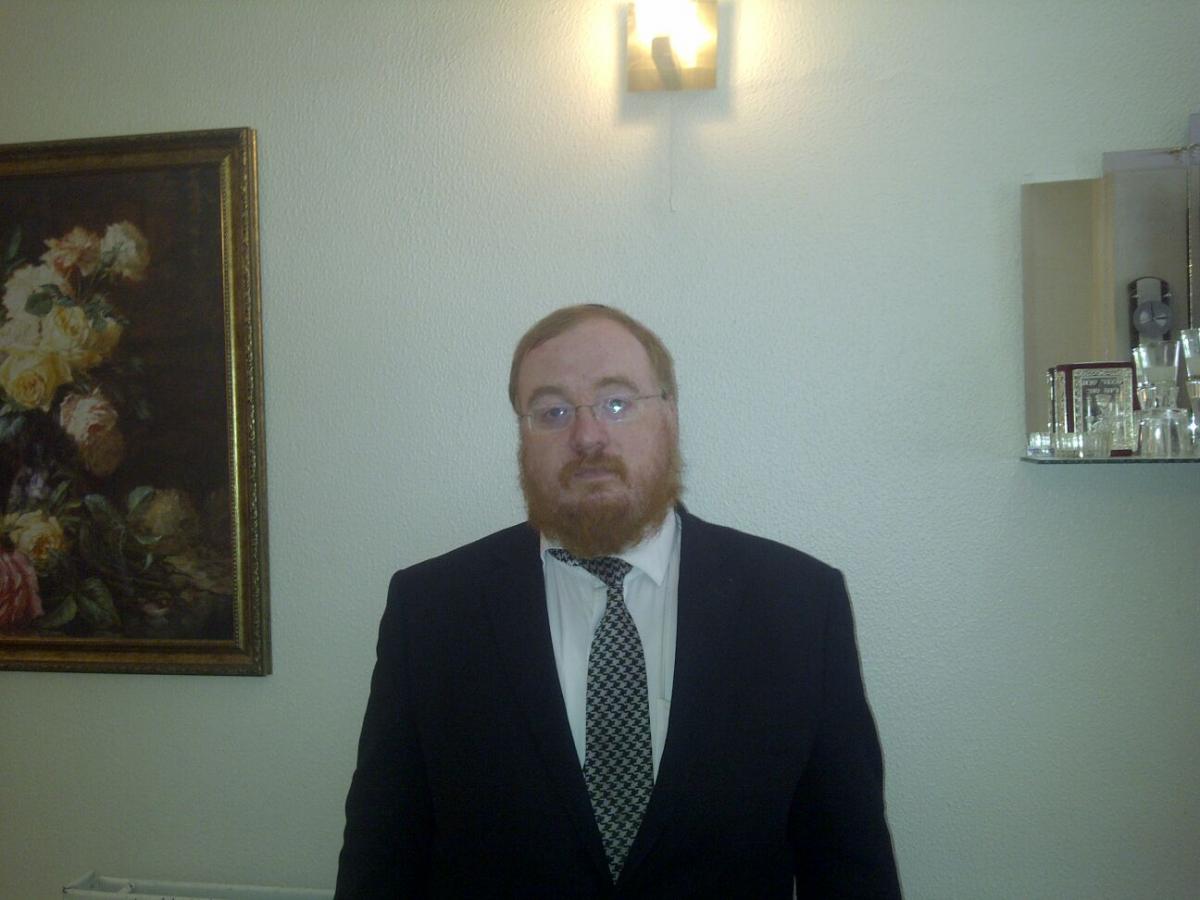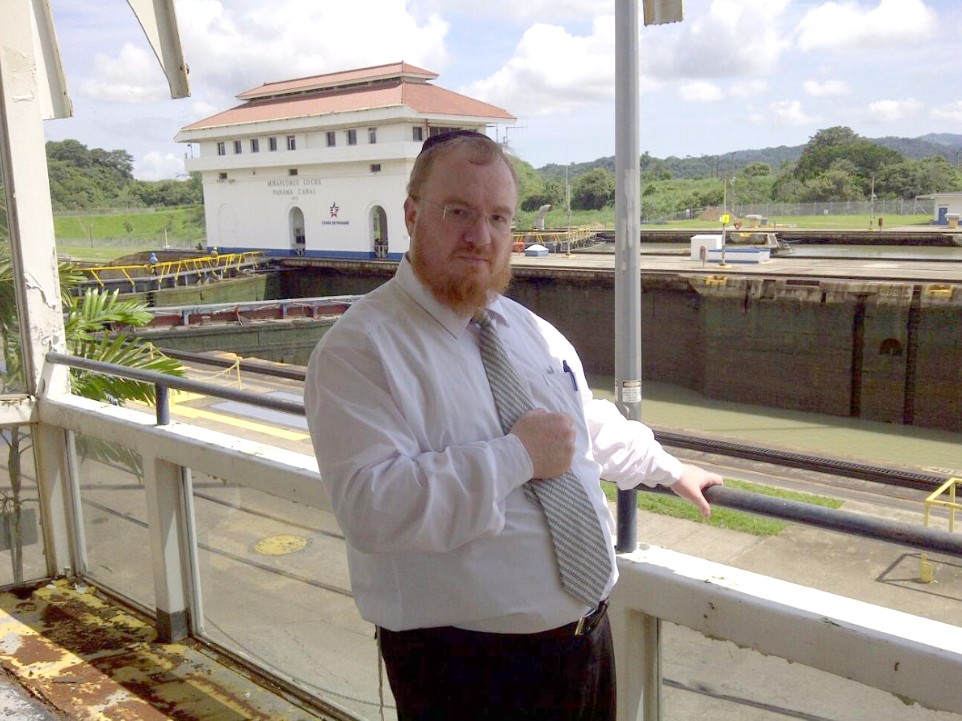Light on Highway 1: The Quiet Spiritual Revolution of Modiin
Rabbi Yitzchak Smieticki remains hopeful about bringing some Torah light to Modiin. Lessons, a seminary for girls, and a group of young yeshiva students with a mission to help the youth. "Slowly, we realized these youngsters don't lack money—they lack attention. We wanted to tell them we love them just as they are. We don't want them to change."
 Rabbi Yitzchak Smiatitzki
Rabbi Yitzchak SmiatitzkiEighteen years ago, when the city of Modiin was in its infancy, it was very difficult to find any traditional Jewish symbols there. A synagogue, a ritual bath, religious schools—these were things not to be mentioned in the secular areas of the city. However, a few years later, when Rabbi David Lau assumed the position of chief rabbi of the city, things began to change..
The initial reform came when a rumor reached the rabbi about a beautiful initiative practiced abroad—yeshiva students traveling on missions to places with no Torah to revive the spiritual desolation and introduce a bit of Yiddishkeit to Jewish homes that feel a type of resistance towards their religion. Rabbi Lau liked the idea and wanted to implement it in his own city. He searched for a God-fearing person who could be his right hand to advance this project, and so he met Rabbi Yitzchak Smieticki (44), a yeshiva student who grew up in Rechavia and also experienced a mission in the USA for a few years. "The idea was to establish a center where yeshiva students would study Torah together with teenage dropouts and influence them to open their hearts, listen, and absorb some values."
 Rabbi Yitzchak Smiatitzki
Rabbi Yitzchak SmiatitzkiAnd so it was. Rabbi Smieticki made sure to bring yeshiva students from Kiryat Sefer, Rabbi Lau arranged a place in the synagogue, and the mission began to take shape, but the secular residents in the city didn't quite appreciate the blessed initiative. The local media were abuzz at the time, covering the topic from every angle. The city of Modiin and the 'Haredi missionary activity' spreading there became the talk of the town. "The secular residents launched a serious attack against us. They thought we should be engraved out now, even at the cost of crocodile tears, so that this weeping doesn't unfortunately become everlasting."
How did you respond?
"That's exactly the point, we didn't respond. It was clear to us that the media were trying to latch onto the 'fringe' of the Haredi camp to give it a negative image, so we didn't fall into that trap and simply let the tempers cool. Over time, when the residents saw that our intentions were good, that we weren't trying to harm or negatively influence, they left us alone."
For 17 years, Rabbi Smieticki has been engaged in enlightening the public as part of this important project. Day in, day out, along the Jerusalem-Modiin axis, for 17 (!) years, ten of which at least passed with thoughts like 'Is the effort really worth the outcome?'. "There were days when I felt that such tremendous efforts weren't meant for reaching a city that doesn't want us. It was very difficult to stand idly by, in such helplessness, and watch how our yeshiva students sacrifice themselves day by day to reach an almost empty synagogue."
If the teenagers don’t come for the refreshments—the refreshments will go to them
And then, just about seven years ago, the long-awaited change arrived. A group of young and 'wild' guys passed by the synagogue, and one of the yeshiva students (who was outside at the time) started talking to them and invited them inside to have a drink. They were stunned: 'Why is this religious guy talking to us?' It was, in their view, a reason to joke, but the yeshiva students didn't waste precious time and brought the refreshments outside. "We chatted with them for a bit, and they went on their way," says the rabbi.
However, the next day, the yeshiva students received a surprise: the teenagers came again and even brought new friends. Slowly, the barrier of distance began to crack, and the teenagers found in the yeshiva students not only an attentive and accommodating ear but also a fascinating and whole world of Torah. Over time, each teenager was paired with a mentor who cared for him from A to Z. "The goal was to reach youth who know nothing, not even what 'Shema Yisrael' is, to refine them and instill them with values that not only give their lives meaning but also accompany them for the rest of their lives.
"And as we got to know these youngsters better, we gained a very significant insight: these teenagers don't lack money, but they lack loads of attention. Some of the wealthy parents want to be left alone, so they shove money into their hands and wish them 'Have fun'. But the message that comes across to the children is horrific: 'Do whatever you want, just don't bother me living'. Nobody cares what they go through, and this is the main reason for the high crime rates in the city."

What changed when you came into the picture?
"We didn't ask anything of them; we didn't ask them to change. The goal was to make them do what they do with completeness and good manners, and to send them out into the world as cultured individuals. With values, aspirations, and vision.
"The main changes we heard about from the parents of the teenagers, who told us the impertinence vanished, the teenager began helping at home, saying thank you for what he receives, and so on—things that didn't exist before. Some parents asked: 'What did you say to the child that I didn't say to him?', and the answer we gave them is simple: besides the fact that it's a direct result of learning the laws of honoring parents, your son understood that we love him as he is and don't demand him to become something he is not."
Thanks to this leadership, dozens of 'rebellious' teenagers have already found the right path and have become a real pride to their teachers and parents, but that’s not all. "Another layer of this work is a girls' seminary we established on a smaller scale of about 60 girls, where we ensure, in due course, they also marry. We have Haredi instructors as well as female rabbis who deliver Torah lessons, and all of them without exception work tirelessly in this place, dedicating their souls so that another girl strengthens her spirituality and merits to establish a house of Torah."
Your advice for rabbis and educators dealing with the same type of challenges?
"From my experience, it's crucial to give the teenager the feeling that we are here for him at any cost, no matter what happens. Even if he stumbles, even if he falls. A teenager who sees how you treat him humanely will grow up to be someone who treats others humanely. For instance, if our teenager is 'stuck' without money or somewhere, he will feel comfortable calling his mentor 24/7. Why? Because we care. We care that he grows up learning from his mistakes, that he learns to take responsibility, that he learns and has good aspirations in life. Spirituality is an added value that we sought to instill in them, and if we succeeded even a little, that's also good. That's also something."

